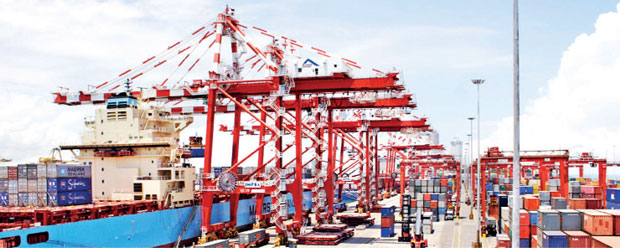23 Aug 2017 - {{hitsCtrl.values.hits}}

BY Rohan Masakorala
With the increasing choice for shipping companies to locate their businesses, the race to attract and retain them is getting tougher. The strategic location, favourable political framework, access to a large pool of talent and overall conducive environment for doing business are fundamental and key elements to be among the best in the world.
Singapore has continued to emerge as the world’s top maritime capital in a report launched in 2017. The study, by Norwegian consultancy firm, Menon Economics, looked at 24 objective indicators and garnered the survey responses from more than 250 industry experts across all continents. Singapore was also ranked first in the report’s 2015 and 2012 surveys.
The Menon Economics report cited expert consensus that Singapore would remain the “most important city” come 2022, but it noted that Shanghai would become the second most important maritime hub. The rankings were compared in five slices: the city’s strengths as a shipping centre, offerings for maritime finance and law, maritime technology, ports and logistics and its overall attractiveness and competitiveness.
A huge challenge for Sri Lanka
Many readers would wonder what about Sri Lanka. Some may ask are we not the 23rd largest container port? The answer is simply we are not yet a world-class maritime nation, not even close to it; we have been lucky that our geography has been economically viable to attract about 14 percent of mostly Southern Indian cargo to transship via Sri Lanka, making our volume to be the 23rd position in the world.
This too is due to competition created in the Port of Colombo, where the efficiency compared to many South Asian ports remains high and world class in the terminal business – beyond that we have not build the ecosystem to be a global maritime capital, which is a mix bag of policy, strategy combined with predictability for global players to show interest.
The Sri Lankan policymakers continue to talk of making Sri Lanka the maritime and logistics hub of the Indian Ocean. The fact remains that the World Bank Doing Business Index and Logistics Index still gives a very low ranking for the country as the process of reforms moves up and down as governments change and people change seats.
The predictability continues to be a problem and many vested interest creeps into policymaking with a real vacuum in independent academic and strategic players not being in the process of understudying the systems. This approach takes the country nowhere at the macroeconomic level.
If the government is not serious of converting the country into a major maritime and logistics destination, Sri Lanka will be restricted to be a transshipment location as long as it can maintain its unit cost better than some regional competitors for containers.
This is certainly not the way to move forward in my opinion. The government needs to look at the five fundamental factors the Menon Economic research has done in detail to determine what is missing in the country. If one looks at the report in detail, it shows how backward the local situation is, for two decades we have mismanaged the port and shipping sector in this country.
Since 1993, no national leader has seen the industry beyond building port capacity (that too without any scientific planning). If we had our environment created for the maritime economy, conducive for international investments on the five factors researched by the Menon Economics, the answers would have been found.
The Hambantota port and airport probably would not have been such a misery for the country and the outcome could have been much different and better in favour of the country if we took the right decisions as an open liberal economy that has given a locational advantage. Simply in my opinion we have messed up and missed the bus many times and the consequences are gradually getting evident.
If Sri Lanka needs to put in a plan to attract global capital and interest to transform the location into a major maritime and logistics capital in the world it needs to be looking at major reforms. The development of the maritime and logistics ecosystem needs investors with knowledge and
business strengths.
If the location can be converted into a successful economic hub using the Indian Ocean and its surrounding environment, then the country can transform into a financial centre too as the government aspires in its plan for the Port City now known as CIFC.
The newly formed National Economic Council (NEC) and Cabinet Committee on Economic Management (CCEM) should work together to draw up an action plan to work toward making Sri Lanka a maritime economy and lift its position way beyond a mere transshipment hub – that is how new revenue and employment can be created. The government will need the will, guts and commitment if they want to have a fresh look at the blue economy and reap its benefits.
(Rohan Masakorala is an economics graduate from Connecticut State University, USA and CEO of Shippers’ Academy Colombo, Founder of Colombo International Maritime Events, Senior Consultant Ports and Airports at SEMA and past Secretary General of Asian Shippers’ Council)
25 Nov 2024 16 minute ago
25 Nov 2024 34 minute ago
25 Nov 2024 59 minute ago
25 Nov 2024 1 hours ago
25 Nov 2024 2 hours ago